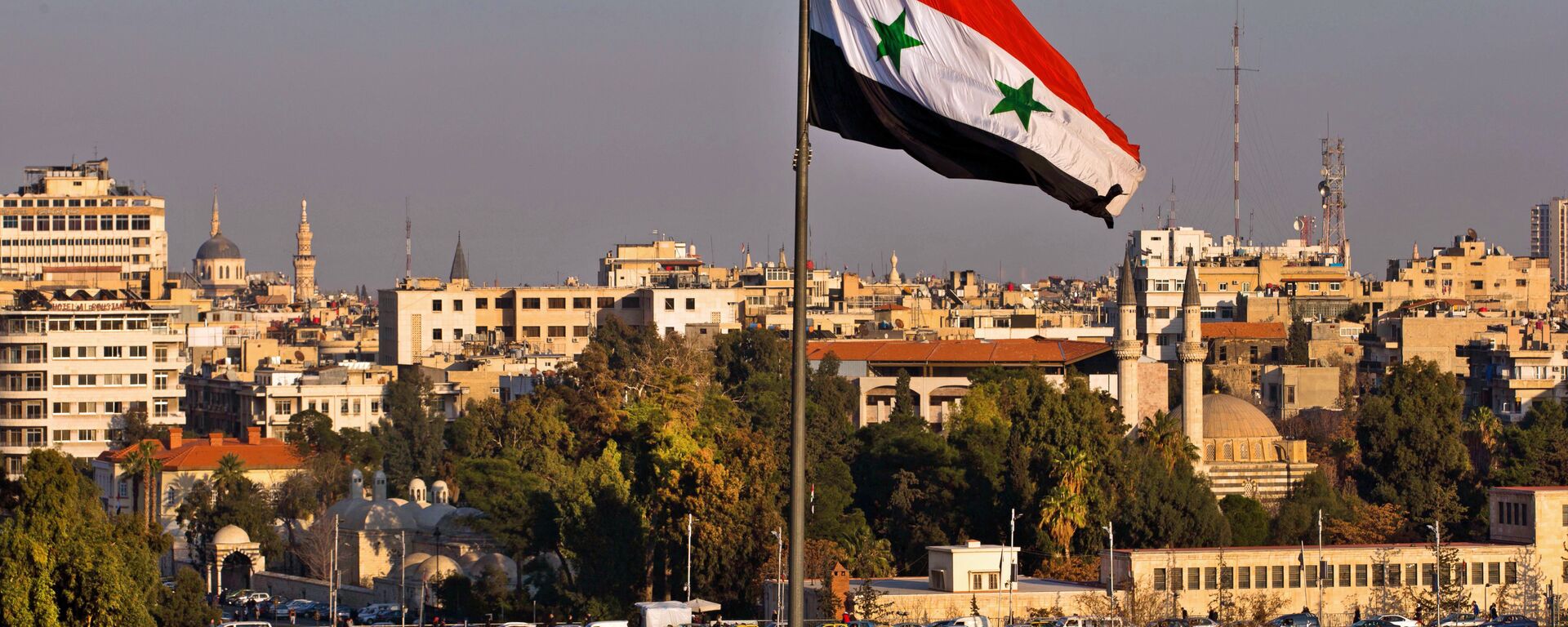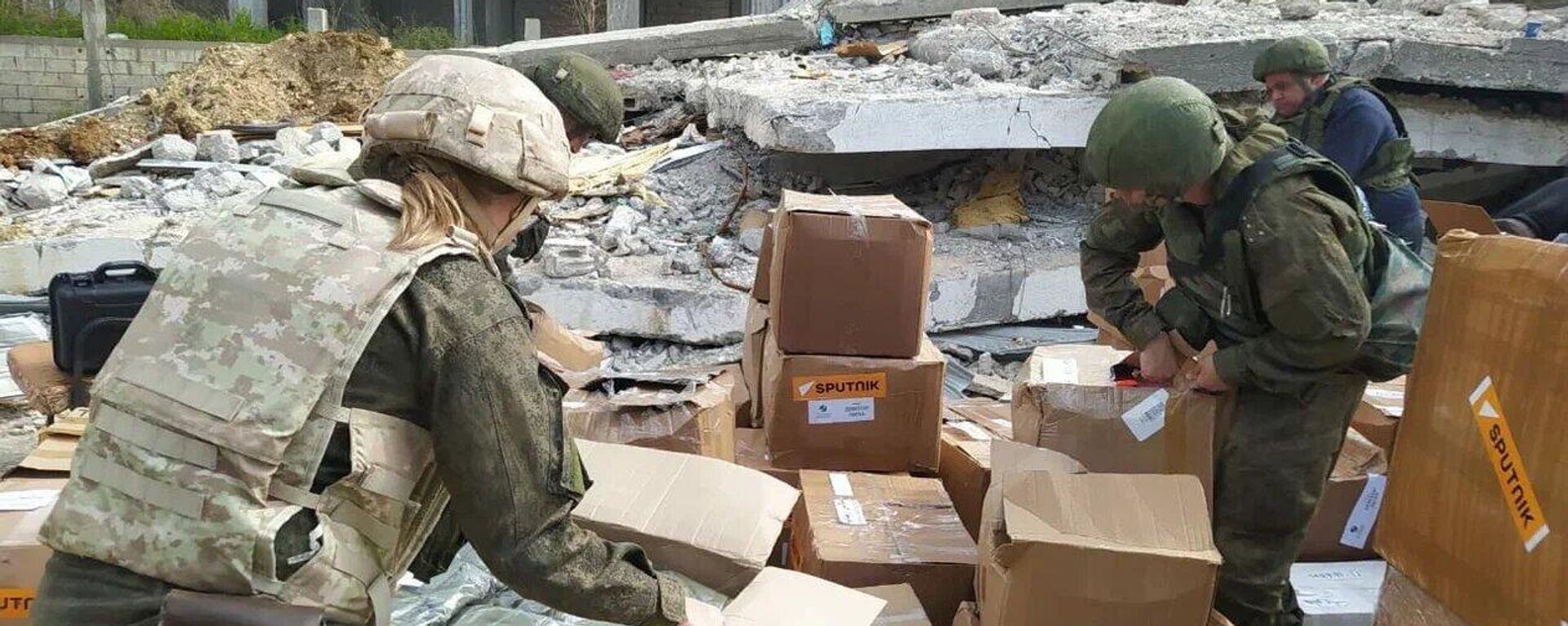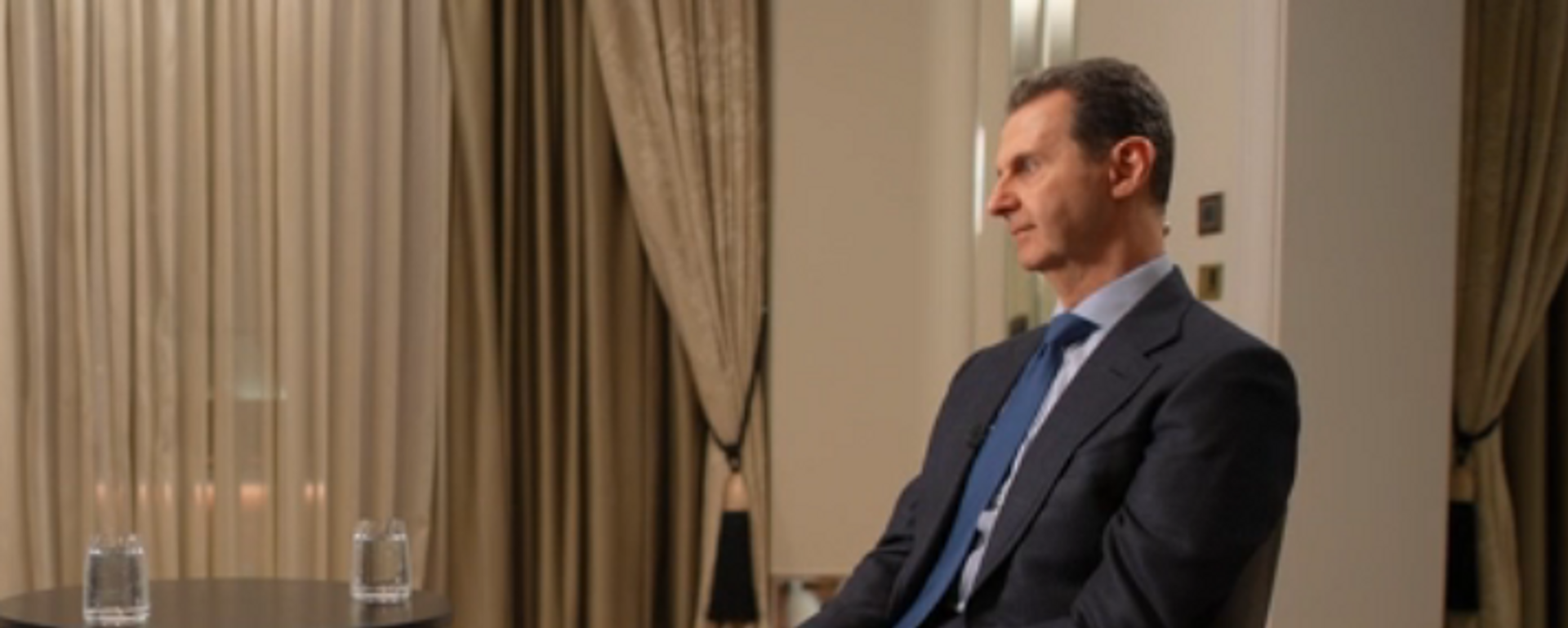https://sputnikglobe.com/20230923/us-to-blame-for-pause-in-syrias-reengagement-with-arab-world---source-1113601158.html
US to Blame for Pause in Syria's Reengagement With Arab World - Source
US to Blame for Pause in Syria's Reengagement With Arab World - Source
Sputnik International
The United States has taken a number of economic measures to repel Arab nations' interest in reengagement with Damascus, which eventually caused the Arab League's special committee to halt contacts with Syria despite the country's readmission to the organization, a source familiar with the matter told Sputnik.
2023-09-23T05:47+0000
2023-09-23T05:47+0000
2023-09-23T05:47+0000
world
middle east
league of arab states
arab league
damascus
saudi arabia
syria
bashar assad
https://cdn1.img.sputnikglobe.com/img/106382/45/1063824526_0:44:1243:743_1920x0_80_0_0_d5fa5c85e13b151ae12f6bd73b0c1ce9.jpg
Earlier this week, media reported that the Arab League committee, which was formed in May to seek a comprehensive solution to the Syrian crisis, had frozen its contacts with representatives of Syrian President Bashar Assad. "Further steps towards supporting Syria, whose economy is in tatters, have been put on hold due to direct US pressure," the source said. The source pointed out that it was Saudi Arabia that launched regional efforts to reengage Syria after 12 years of isolation within the Middle East. Kuwait, Qatar, and Morocco were reluctant at first, but later also embraced Syria into the Arab League in the hope of stabilizing the situation in the country through its economic reconstruction. Therefore, in May, the League of Arab States reinstated Syria's membership in the organization, ending a long hiatus. However, financial support for Syria and plans for its post-war rebuilding turned out to be hampered by the US's Caesar Syria Civilian Protection Act of 2019 and its expected supplement, 2023 Assad Regime Anti-Normalization Act, which might extend the US administration's authority to sanction those cooperating with Syria, the source said, adding that anticipated investments from Arab countries never materialized. "The reasons for discouragement were technical, diplomatic and political difficulties resulting from the US Caesar Act and other US sanctions against Syria," the source explained. Syria has been under sanctions pressure from the United States, the European Union and a number of individual countries since the start of clashes with Western-backed jihadists in 2011. The US restrictions are believed to be the toughest, as they include an embargo and affect third parties. US secondary sanctions were restricted until 2020 when the Caesar Act, signed by then-US President Donald Trump in 2019, went into effect. The Caesar Act is designed to deter support for reconstruction efforts by the Syrian government. It imposes sanctions on anyone who provides funding or assistance to the Syrian government and the country's central bank. Moreover, the legislation imposes sanctions on those providing aircraft or spare parts to Syrian airlines or who are involved with government-controlled construction and engineering projects. In May 2023, US lawmakers also submitted the Assad Regime Anti-Normalization Act to the parliament to amend the Caesar Act and further expand sanctions on those providing financial and technological support to Syrian groups and enterprises. The US government now has the authority to introduce sanctions until the end of 2025, while the new legislation, if adopted, would extend this power through 2032.
https://sputnikglobe.com/20230511/who-is-unhappy-about-syrias-return-to-the-arab-league-1110259422.html
https://sputnikglobe.com/20230316/assad-praises-russian-aid-to-earthquake-hit-syria--1108445468.html
https://sputnikglobe.com/20230316/assad-international-coalition-needed-to-counter-us-hegemony-1108449282.html
damascus
saudi arabia
syria
Sputnik International
feedback@sputniknews.com
+74956456601
MIA „Rosiya Segodnya“
2023
Sputnik International
feedback@sputniknews.com
+74956456601
MIA „Rosiya Segodnya“
News
en_EN
Sputnik International
feedback@sputniknews.com
+74956456601
MIA „Rosiya Segodnya“
Sputnik International
feedback@sputniknews.com
+74956456601
MIA „Rosiya Segodnya“
middle east, syria, us against syria, arab league, syria rapprochment
middle east, syria, us against syria, arab league, syria rapprochment
US to Blame for Pause in Syria's Reengagement With Arab World - Source
ST. PETERSBURG (Sputnik) - The United States has taken a number of economic measures to repel Arab nations' interest in reengagement with Damascus, which eventually caused the Arab League's special committee to halt contacts with Syria despite the country's readmission to the organization, a source familiar with the matter told Sputnik.
Earlier this week, media reported that the Arab League committee, which was formed in May to seek a comprehensive solution to the Syrian crisis, had frozen its contacts with representatives of Syrian President Bashar Assad.
"Further steps towards supporting Syria, whose economy is in tatters, have been put on hold due to direct US pressure," the source said.
The source pointed out that it was Saudi Arabia that launched regional efforts to reengage Syria after 12 years of isolation within the Middle East. Kuwait, Qatar, and Morocco were reluctant at first, but later also embraced Syria into the Arab League in the hope of stabilizing the situation in the country through its economic reconstruction. Therefore, in May, the League of Arab States reinstated Syria's membership in the organization, ending a long hiatus.
However, financial support for Syria and plans for its post-war rebuilding turned out to be hampered by the US's Caesar Syria Civilian Protection Act of 2019 and its expected supplement, 2023 Assad Regime Anti-Normalization Act, which might extend the US administration's authority to sanction those cooperating with Syria, the source said, adding that anticipated investments from Arab countries never materialized.
"The reasons for discouragement were technical, diplomatic and political difficulties resulting from the US Caesar Act and other US sanctions against Syria," the source explained.
Syria has been under sanctions pressure from the United States, the European Union and a number of individual countries since the start of clashes with Western-backed jihadists in 2011. The
US restrictions are believed to be the toughest, as they include an embargo and affect third parties. US secondary sanctions were restricted until 2020 when the Caesar Act, signed by then-US President Donald Trump in 2019, went into effect.
The Caesar Act is designed to deter support for reconstruction efforts by the Syrian government. It imposes sanctions on anyone who provides funding or assistance to the Syrian government and the country's central bank. Moreover, the legislation imposes sanctions on those providing aircraft or spare parts to Syrian airlines or who are involved with government-controlled construction and engineering projects.
In May 2023, US lawmakers also submitted the Assad Regime Anti-Normalization Act to the parliament to amend the Caesar Act and further expand sanctions on those providing financial and technological support to Syrian groups and enterprises. The US government now has the authority to introduce sanctions until the end of 2025, while the new legislation, if adopted, would extend this power through 2032.







